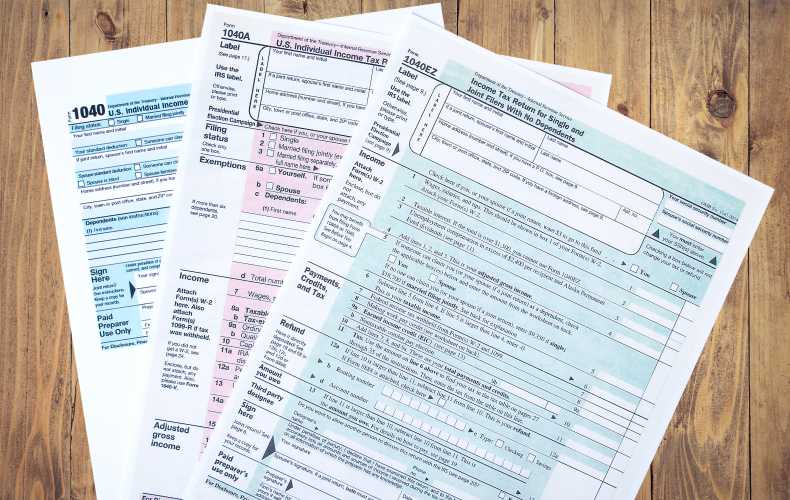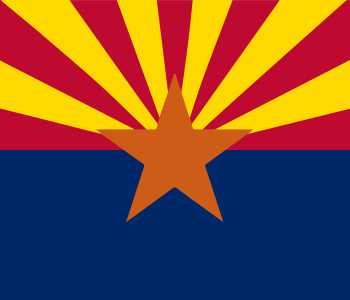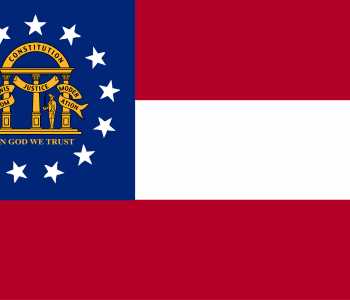Small Business Tax Deductions

It should come as no shock to anyone that small business owners take on a lot of risk to turn their dreams into a reality. When starting a small business it means that there are many days ahead of long hours, stressful situations, and putting out fires. And, even after all of that hard work, about half of all small businesses must shut their doors within 5 years.
Of course, the story isn't all doom and gloom. The upside of starting a successful small business means that business owners can build a life for themselves and their families that a typical 9 to 5 job may not be able to offer. Small business owners employ 62% of the private sector workforce in America and make a huge difference in their communities by providing opportunity, taking on charitable causes, and even supporting other small businesses.
For this reason, governments incentivize small business owners to pursue their passion through the use of small business tax deductions. These deductions help business owners invest in their operation, work towards success, and achieve their goals. However, many business owners are unaware of the many small business tax deductions available to them and, as a result, miss out on potentially thousands of dollars each year that is paid in taxes but could be used for other purposes.
This article will cover the wide range of tax deductions available for small businesses, how to take advantage of those taxes, and some of the requirements for business owners who are looking to decrease their tax obligations next tax season.
Time for Some Disclaimers
Of course, no discussion about taxes would be complete without a few disclaimers. It is important to mention a few things that small business owners should be aware if they are planning to utilize the many tax deductions available to them.
First, business owners who plan on claiming tax deductions must be very careful to keep, manage, and track receipts. "Audit" is a scary word for anyone, regardless of whether they are a business owner or not. Audits don't have to be scary and can be quickly dealt with assuming that all evidence of tax deductions has been maintained and organized.
Next, it is also important to stay up-to-date on changes in tax law. Some deductions may be expanded as government passes bills while other tax breaks may be reduced or even eliminated completely. Finding this out during year end tax filing is the absolute worst way to be made aware of changes in tax law.
If the above two considerations prove to be a challenge for busy small business owners - then it may be wise to enlist the help of a bookkeeper or accountant. This could be in the form of in-house staff or, more likely, a dedicated bookkeeping and accounting firm.
The Complete List of Small Business Tax Deductions
This is a comprehensive list of the many tax deductions currently available to small businesses. Some may be general knowledge while others may come as a surprise.
Home Office Expenses
For many small business owners, their office is also their home. In addition, a lot of small business owners use personal equity in their home to help fund their venture and get it off the ground. These expenses are eligible tax deductions when it comes time to file.
There are a few considerations before claiming home office expenses during tax filing. First, the home office must be the exclusive place of business. This means a secondary home office does not qualify for tax deductions. The area in the home being used as a home office must also be used exclusively as a home office and cannot double as a dinner table, for example. If the above conditions are met, small business owners can claim $5 per square foot, up to 300 square feet, as home office expenses.
In addition, interest paid on mortgages used for business purposes including improvement of the home office can be deducted on small business taxes.
Depreciation of Assets
Many small businesses own expensive pieces of equipment in order to complete work. This could include anything from professional quality computers to specialized construction equipment. Of course, these assets depreciate over time and, eventually, will become nearly worthless if they were to be resold.
There are several ways to calculate depreciation. Some items may even be able to be claimed in their entirety during the first year. The most important thing is to consistently track depreciation from the moment the asset is purchased in order to be able to claim it on taxes
Claim Those Fees
Every time a small business owner turns around it may feel like they are being hit with more and more fees. These fees can add up and take a chunk out of profitability. Luckily, these fees can often be claimed as small business tax deductions.
Bank fees are one of the main examples of a common fee that most business owners pay as a part of doing business. Keeping bank statements that clearly outline the fees charged for services can allow small businesses to claim these fees when filing taxes.
There are also a number of professional fees that businesses will pay to other professionals for their services. Legal fees and bookkeeping fees are the most common examples of these types of fees. Allowing small businesses to claim these fees on their taxes ensures that small business owners can seek out the best quality services for their business.
Merchant processing fees are also another significant cost for many businesses that accept credit or debit as payment. Depending on the processing company used, these fees can be upwards of 2% per transaction! Those fees, much like bank fees, can also be claimed on small business taxes. Again, it's important for small business owners to retain clear outlines of the fees being paid in order to claim them as deductions.
Promote, Network, and Grow
Part of growing a small business means earning clients and making people aware that the business even exists. Marketing and client meals can seem like additional, unnecessary expenses but they can deliver exceptional results.
The best news for business owners is that many of these expenses including advertising costs and client meals can be claimed as a businesses expense. Even professional, new business cards are an eligible expense. Keep those receipts and, in the cases where the purpose for the expense may not immediately be clear, make notes about why the expense is being claimed, who the client was, and any other important information. This is especially important when determining business meals versus personal meals.
One thing to note about client meals that is often a misconception come tax time is that these entertainment expenses must be limited to business meals. Other entertainment expenses like sporting events, a round of golf, or a trip to the theatre are not eligible to claim as small business tax deductions. That's not to say they aren't valuable expenses for the business, they just can't be claimed when it's time to file.
Salaries, Benefits, Healthcare, and Retirement Contributions
Whether a small business only has a single owner/operator, or several employees; benefits, salaries, and retirement contributions can all add up. These are used to attract and retain great staff, as well as pay small business owners a personal income from the business earnings.
Employee salaries and benefits including healthcare premiums can be claimed as business expenses. This is not true, however, for people who may be working as contractors.
In addition, any personal healthcare expenses as well as retirement contributions can be claimed as personal expenses to help reduce total income tax obligations for individuals including small business owners.
Putting Rubber to Pavement
Hitting the road, visiting clients, and performing other business activities can quickly add up vehicle and transportation expenses. There are several ways to help mitigate the effect using a vehicle has on the businesses' bottom line.
First, vehicles can be claimed as depreciating assets. The amount a business can claim for a vehicle depends on when the vehicle was put into service. New vehicles used for more than 50% business purposes have certain amounts that can be claimed. The details can all be found right on the IRS website.
Many small business owners may not have dedicated business vehicles and, instead, use their personal vehicles for occasional business purposes. While depreciation may not be able to be claimed on personal vehicles, business owners can claim mileage for trips that were made on behalf of the business. Currently, the mileage deduction is $0.545 per mile.
Mileage must be tracked carefully if it is going to be claimed as a business expense. For those planning on claiming mileage, keeping a logbook of business travel with notes about the details of the trip as well as the odometer readings can make the mileage claiming process much easier. This also helps quickly answer any questions that arise from the IRS when claiming these expenses.
Protect and Insure
Business insurance can serve many purposes. For some business owners, it is simply to protect them from liabilities that may result from the work that they do. Other businesses may need insurance that covers customers who visit their location.
In any case, having business insurance is a necessary expense for most businesses. This is another cost that can be claimed along with the other small business tax deductions noted on this list.
Never Stop Learning
For many small businesses, the greatest asset is the owner and employees. Growing proficiency, expanding knowledge, and furthering education can all be claimed as business expenses.
These expenses could include classes and education but do not have to come in the form of traditional education, either. Seminars or webinars are qualifying expenses, as are workshops, subscriptions to industry publications, and even transportation expenses associated with this learning.
If the training falls outside of the scope of the business, however, it may not qualify. This could include training for a new career or field.
Giving is Good
Giving back to the community in the form of charitable donations is something many small businesses do on a regular basis. This giving nature can have a positive effect on total tax obligations at year end.
How the charitable contributions are claimed depends a lot on how the business is structured. A corporation, for example, can claim charitable contributions on corporate taxes. However, other businesses like sole proprietorships must claim these contributions on personal taxes. This ultimately helps reduce personal income that has been claimed as a salary from the business.
Cost of Goods Sold
Small businesses can also claim the cost of purchasing or manufacturing items that they sell. This does not obviously apply to all businesses as many may sell a service rather than a tangible product. However, in some cases, there are still ways to claim the cost of goods sold even if the product or service being sold is not a physical product. This could include hosting costs, subscription costs, licensing fees, and more.
In either case, these costs must be associated with the actual product or service being sold and should not be confused with other operational expenses. When in doubt about claiming cost of goods sold, it may be wise to consult an accountant who can provide more clarity on the specific expenses in question.
Office Supplies and Furniture
No office can function without paper to print on, chairs to sit on, desks to write on, and software to work with. All of these are eligible office expenses that can be claimed as small business tax deductions.
Furniture and decor can be claimed in the year the items are purchased or can be claimed as depreciable assets like many other pieces of equipment small businesses use. How they are claimed will largely depend on the tax needs of the business.
Office supplies and regular expenses are not considered depreciable assets and, as such, must be claimed in the year the supplies were purchased. This is an important distinction between the two different categories of items.
A good rule of thumb is that single use or consumable items are not depreciating while long term, reusable items like furniture are depreciable.
Phone and Internet Communication
It's nearly impossible for any business to operate without a phone and the internet these days. The expenses are a necessary part of doing business and there is no getting around that. The good news is that these expenses can be claimed as small business tax deductions.
If businesses have a dedicated internet plan and phone line for the business then those expenses can be entirely claimed as a business expense. The water gets a little more murky when the business is a home business, for example, and the use of phone and internet is both personal and business.
In the event that a business is operating from a home and sharing the same phone line and internet plan as the occupants of the home then the percentage of business usage must be determined. Once that is done, that percentage of the total phone and internet bill may be claimed as a business expense. If necessary, track how many hours the phone and internet is being used for business purposes and then log those times in a logbook for easy reference come tax time.
Contractor Expenses
Earlier, claiming employee salaries and benefits was mentioned as a deductible business expense. Paying contractors or paying a commission is considered a different deduction and should not be lumped in with employee deductions.
Anyone paid more than $600 per year for services must be issued a 1099 and the money paid to them for their services can then be claimed as a small business expense. Whenever a business enters into a relationship with someone who will be working for them in some capacity it is important to determine if this person is an employee or a contractor so that the expenses can be claimed appropriately.
Business Travel
Sometimes it is necessary for business owners to travel outside of their city to secure deals or attend business-related events. These expenses may include airfare, meals, hotels, mileage, parking, and other associated travel expenses.
There are a few rules that surround business travel if small business wish to claim the travel on taxes. Most importantly, the travel must be outside of the businesses' immediate area. Even in a large city, a business owner could not claim a hotel stay for a convention on the other side of the city in order to reduce travel times.
Use the Deductions Given and Stay Up-to-Date
Claiming small business tax deductions is an ongoing process that must be reviewed regularly to ensure that new deductions are not being missed and regular deductions have not been changed. Incorrectly claiming deductions can turn into a headache for small business owners that are already stretched thin.
The advice listed above is a great way to start reviewing small business tax deductions and making sure that every business makes the most out of each and every expense.







